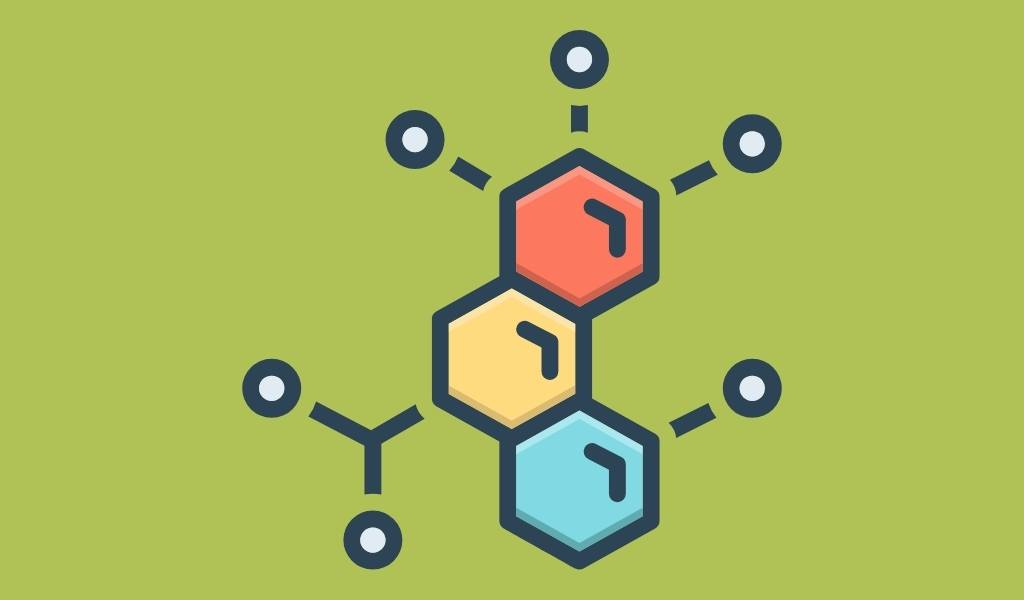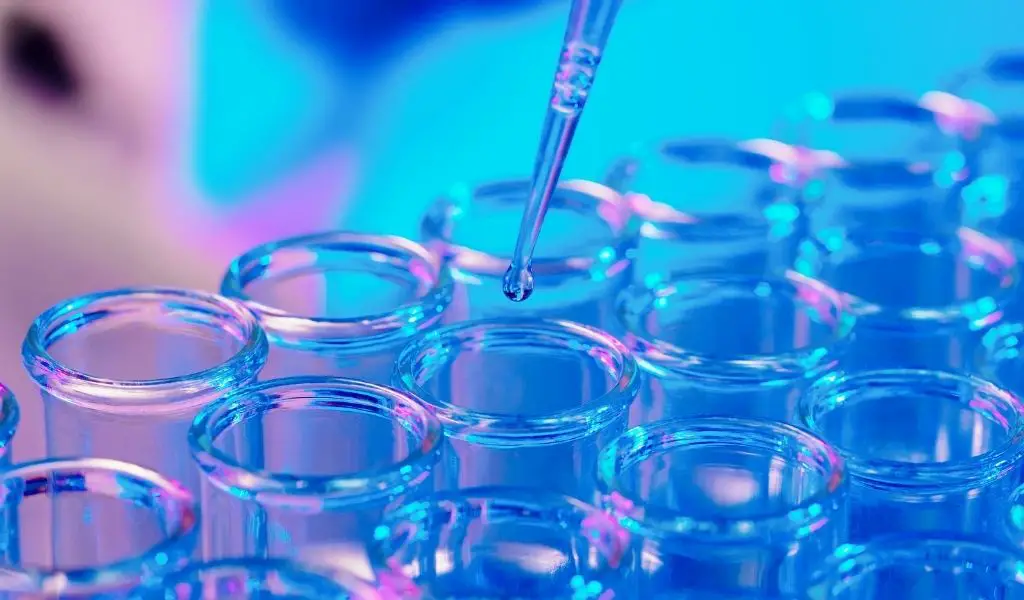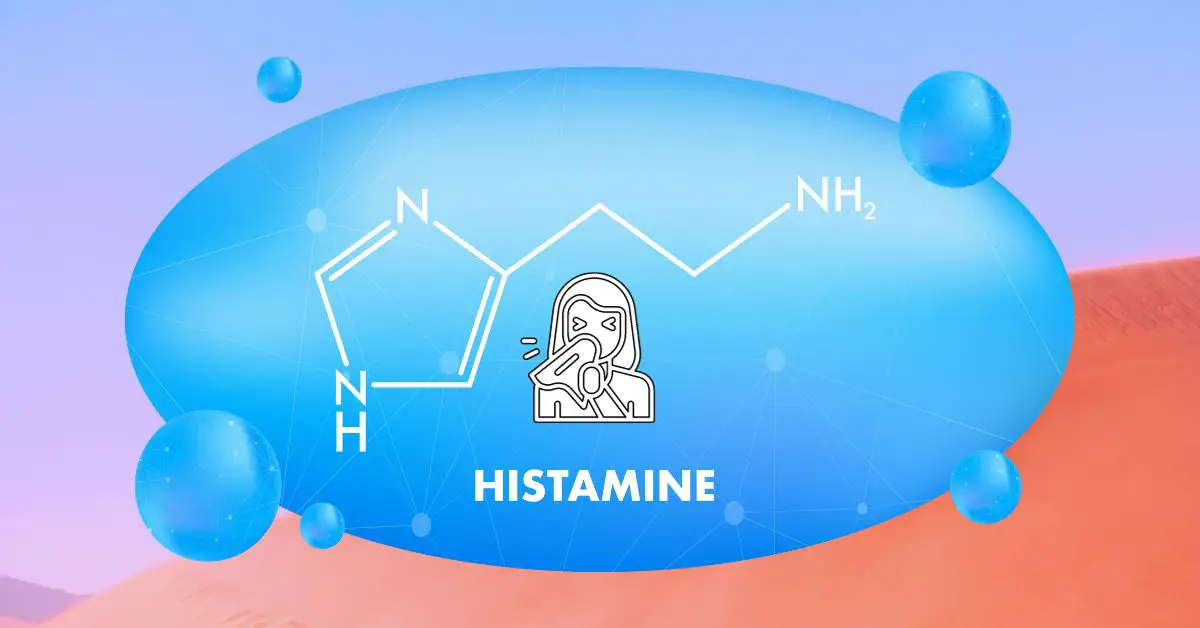Is histamine intolerance hereditary? If you’ve been diagnosed with histamine intolerance, you might struggle to understand why. One question people ask is whether histamine intolerance is hereditary and whether it runs in families.
It’s a fair question to ask. Genes are the blueprint for our existence. They orchestrate every facet of our identity, from physical attributes to susceptibility to various health conditions. Genes can be both protectors and provocateurs, either shielding us from certain ailments or making us more vulnerable.
Just as your physical features and hair type are encoded within your genetic makeup, so too is our susceptibility to certain health conditions.
In this article, we’ll dig deeper into the relationship between genes and histamine intolerance and what role genes and heredity play in developing this health condition that causes high histamine levels.
What Causes Histamine Intolerance?
When you have histamine intolerance, your body struggles to break down histamine efficiently, leading to a cascade of uncomfortable symptoms.(1) The symptoms vary from person to person. Your experience might be quite different than someone else’s experience with histamine intolerance.
For example, one person with histamine intolerance may have digestive symptoms, like bloating and indigestion, while another might have symptoms related to the respiratory tract, like nasal stuffiness. Some people have both!
The symptoms of histamine intolerance are quite diverse but are caused by too much histamine in your body. One reason our histamine levels are too high is because we don’t have enough of the key enzymes that break down histamine.
The Genetic Foundation of Histamine Intolerance
Genes operate by coding for specific proteins, like enzymes, including ones that break down histamine. Enzymes are the workhorses of our bodies, facilitating countless biological processes.
However, when a genetic “typo” occurs or an inherited mutation takes place, it can disrupt the production of these vital enzymes, so you end up with less than you need for good health.
When it comes to histamine intolerance, scientists have identified several enzymes that contribute to histamine intolerance. These enzymes break down histamine into a form that your body can more easily eliminate.
If you have a deficiency in one or more of these genes, you won’t break down histamine as efficiently, and it can accumulate in your body and cause histamine intolerance symptoms.

Enzymes That Break Down Histamine and Affect Histamine Levels
To better understand histamine intolerance and whether it’s inherited or passed down through families, you need to understand the enzymes that help your body break down histamine and keep your histamine levels in a healthy range.
Diamine Oxidase (DAO)
Diamine oxidase (DAO) is the main enzyme responsible for breaking down histamine, particularly within your digestive system. When you don’t have enough DAO to break down histamine adequately, histamine accumulates, leading to the symptoms of histamine intolerance. (2)
This deficiency, known as primary DAO insufficiency, can be managed, in some cases, with DAO supplements. However, a low-histamine diet should also be part of any treatment plan to reduce the amount of histamine your body has to break down. It’s the first line of defense against excess histamine.
Histamine N-methyltransferase (HNMT)
Histamine N-methyltransferase (HNMT) is another enzyme involved in the breakdown of intracellular histamine. It plays a prominent role in breaking down histamine in the central nervous system. (3) and helps clear histamine from your airways. (5) Genetic variations that reduce HNMT activity can exacerbate histamine intolerance symptoms, including anxiety, mood swings, and even conditions like Parkinson’s Disease.
Monoamine oxidase (MAO)
Monoamine oxidase (MAO) is an enzyme responsible for degrading a histamine metabolite called N-methyl-histamine. (4) You can find MAO in a variety of tissues in the human body, but quantities are highest in the liver. Although not its primary function, insufficient MAO production can impact histamine levels, potentially intensifying symptoms. So, defects in this enzyme make it harder for your body to clear histamine.
Methylenetetrahydrofolate Reductase (MTHFR)
The MTHFR genetic mutation is prevalent in around 50% of individuals. This gene encodes methylenetetrahydrofolate reductase (MTHFR), a crucial enzyme in the folic acid cycle. Methylation, a process influenced by MTHFR, plays a key role in reducing histamine levels. If you don’t have enough MTHFR and your diet lacks enough folate or choline, types of B-vitamins, you won’t break down histamine as efficiently. Managing this genetic variation through dietary adjustments or supplements can mitigate histamine-related issues.
Histidine Decarboxylase (HDC)
Histidine decarboxylase (HDC) determines your body’s ability to convert the amino acid histidine into histamine. Mutations in this gene can lead to elevated histamine levels and an increased likelihood of allergies and nasal congestion.
The Interplay of Genes and Histamine Intolerance
While it’s clear that defects or mutations in these genes, especially the DAO gene, contribute to histamine intolerance, it’s less clear whether all the enzyme deficiencies that go with histamine intolerance is hereditary, or whether these gene changes and defects are passed down through families.
One that we know is inherited is MTHFR gene mutation. You inherit one copy of the MTHFR gene from each parent. If one or both copies (from your parents) are mutated, you risk manifesting the problems associated with low levels of this enzyme, including problems breaking down histamine. With this mutation, you will also have problems metabolizing folate, which can cause other health issues.
Gene mutations can also be acquired through environmental exposure. So, just because you have a defect that lowers your body’s ability to produce a certain enzyme, it doesn’t prove you inherited it from your mother or father.
Does Histamine Intolerance Run in Families?
If histamine intolerance is inherited, you would expect to see clusters of cases within families. Although few studies have looked at this issue, there’s no clear evidence that histamine intolerance occurs more often in certain families.
Sources say that histamine intolerance affects 1–3% of adults, but there’s some evidence that it’s underdiagnosed. But there’s little evidence that it clusters in families.

Can You Test for Histamine Intolerance Genetically?
You can get tested to determine whether you have a mutation in the MTHFR gene that makes it harder to metabolize histamine. Plus, you can also get testing to determine whether you have a variant of the diamine oxidase (DAO) gene that’s essential for histamine breakdown.
A Low-Histamine Diet Is the Key to Controlling Histamine Intolerance
One of the most potent tools in controlling histamine intolerance is a carefully curated diet. A histamine-restricted diet can alleviate the burden histamine places on your body. Plus, lifestyle habits will help you avoid triggering histamine intolerance symptoms. Getting enough sleep and managing stress are key for keeping your body in balance.
Is Histamine Intolerance Genetic?
Defects in genes that code for enzymes that break down histamine contribute to histamine intolerance. However, it’s not proven whether gene variations associated with histamine intolerance are inherited or acquired. It’s an area that needs more research. It’s also complicated by the fact that cases of histamine intolerance may go undiagnosed.
What we do know is that histamine intolerance is a multifaceted health concern, and enzymes that break down histamine contribute to the diverse manifestations of this condition. Understanding the genes at play, such as DAO, HNMT, MTHFR, MAO, and HDC, is essential for effective management.
By embracing personalized approaches, including dietary adjustments, you can take control of your histamine intolerance and pave the way for a healthier, symptom-free life.
References:
- Zhao Y, Zhang X, Jin H, Chen L, Ji J, Zhang Z. Histamine Intolerance-A Kind of Pseudoallergic Reaction. Biomolecules. 2022 Mar 15;12(3):454. doi: 10.3390/biom12030454. PMID: 35327646; PMCID: PMC8945898.
- Manzotti G, Breda D, Di Gioacchino M, Burastero SE. Serum diamine oxidase activity in patients with histamine intolerance. Int J Immunopathol Pharmacol. 2016 Mar;29(1):105-11. doi: 10.1177/0394632015617170. Epub 2015 Nov 16. PMID: 26574488; PMCID: PMC5806734. https://pubmed.ncbi.nlm.nih.gov/26574488/
- Yoshikawa T, Nakamura T, Yanai K. Histamine N-Methyltransferase in the Brain. Int J Mol Sci. 2019 Feb 10;20(3):737. doi: 10.3390/ijms20030737. PMID: 30744146; PMCID: PMC6386932.
- Costiniti V, Spera I, Menabò R, Palmieri EM, Menga A, Scarcia P, Porcelli V, Gissi R, Castegna A, Canton M. Monoamine oxidase-dependent histamine catabolism accounts for post-ischemic cardiac redox imbalance and injury. Biochim Biophys Acta Mol Basis Dis. 2018 Sep;1864(9 Pt B):3050-3059. doi: 10.1016/j.bbadis.2018.06.018. Epub 2018 Jun 25. PMID: 29953926. https://www.sciencedirect.com/science/article/pii/S0925443918302229
- Yamauchi K, Sekizawa K, Suzuki H, Nakazawa H, Ohkawara Y, Katayose D, Ohtsu H, Tamura G, Shibahara S, Takemura M, et al. Structure and function of human histamine N-methyltransferase: critical enzyme in histamine metabolism in airway. Am J Physiol. 1994 Sep;267(3 Pt 1):L342-9. doi: 10.1152/ajplung.1994.267.3.L342. PMID: 7943261. https://pubmed.ncbi.nlm.nih.gov/7943261/

